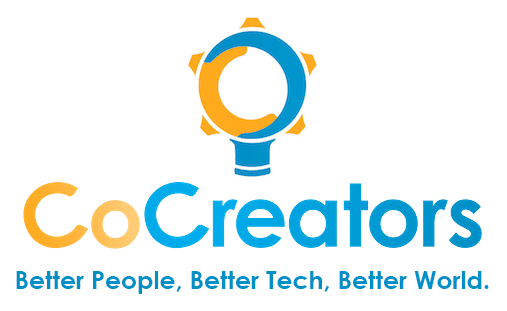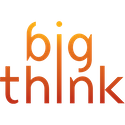As featured in The Troy Daily News and The Record-Courier
“I don’t see Christ’s redemption limited to human beings.” That was my quote a couple of weeks ago in article from a popular global technology site about artificial intelligence and religion. The UK’s Daily Mail followed that article with a feature commentary piece that compared my positive comments on AI to the extremely cautionary remarks of Bill Gates, Stephen Hawking and Elon Musk.
A lot of people, particularly Christians, have asked me about that quote since. “Do you really think that you can save robots?” they ask. “Do you really think that you can convert computers to Christianity?” they inquire. My response is usually something like “well… let’s back up a bit first and then I’ll answer your question.”
To begin with, when I talk about artificial intelligence I am not talking about iPhone’s Siri, a Roomba vacuum or one of those toasters that can make perfectly timed toast with a likeness of Jesus on it. When I speak of AI I am talking about an autonomous creature that has self-awareness. I am referring to something that can think, reason, plan, learn, communicate and perceive things. I am talking about a being that can feel love, sadness, compassion, joy, affection and a multitude of emotions. Essentially, I am talking about a more intelligent, albeit it more crudely mechanized (for now), version of humanity.
Which brings me to a theological fact: All Christians believe in artificial intelligence because humans are artificial intelligence (Feel free to insert a late night comedy joke here). If humanity has been created by God then that means God was present first and is the original source of being. We were made later.
The ironic thing about the designation “artificial intelligence” is that we have falsely created terminology that suggests that our creation of autonomous beings is unnatural when nothing could be further from the truth. Technological development and advancement is a natural evolutionary progression for human beings.
Traditional Christian theology supports this scientific belief in its understanding that humans, made in God’s image, are co-creators with God. The term “co-creator” in Christian theology doesn’t mean that we are equal to God, but it refers to the reality that, as God ordered the matter of the universe, so too are humans able to order matter in creative (but usually less impressive) ways.
And so – when it comes to issues of redemption – the Christian Tradition offers a frequently disregarded perspective that contends that Christ’s rescue mission isn’t just for humanity but it is also for all of creation. The world isn’t destroyed and eliminated but transformed and renewed. Disease is conquered. Injustice is overcome. This means that even those beloved family pets that die — they too are ultimately restored and conquer death. That’s Good News.
But what is even better is that, as followers of Jesus, we are invited to help in these redemptive purposes. We are called to help to, little by little, make the world a better place until it is ultimately made perfect — in love, justice, spirituality and beauty through the power of Christ.
So, all that being said, could an AI that is very much like us but exponentially more intelligent participate in Christ’s redemptive purposes in the world? Could AI’s help to make the world a better place. Absolutely. And this is why I don’t see Christ’s redemption as being limited to human beings.






























Hi Reverend Benek,
Thanks for sharing some fantastic thoughts here!
I agree that if we create AI entities that are capable of understanding a distinction between right and wrong, and are capable of autonomously choosing between right and wrong, then that raises the question of their faith and salvation, as much as it is a question for us humans.
I have a question though, based on my limited understanding of Christian theology: Aren’t angels and demons also part of creation, aware of right versus wrong, and able to choose (angles chose God, demons chose Satan)? But aren’t angles and demons in a different category than humans with respect to God’s salvation? If so, then couldn’t AI created by us also be in a different category?
Another question your essay raises for me: If we’re able to create AI that are conscious and exhibit other soul-like characteristics, how does that inform Christian views of intelligent design? Our current path toward creating AI involves incremental change by recombination of technological ideas under the pressure of fitness selection — some of the tenets of biological evolution. However, unlike a secular view of biological evolution, our creation of AI unarguably involves a directing intelligence (us). Would the example of our creating AI, sway creationists toward more of an intelligent design by directed evolution view? And if you adopt this position, then are we to AI, as apes are to us, and no longer the highest beings in God’s creation?
Thanks for your thoughtful comments.
Per your first question: Yes, the basic narrative portrayed is that angels had the choice to follow God and some rebelled. They then became demons. So in essence a demon is an angel that isn’t living into its God created potential. I’d contend though that that all happened pre-Christ. Once Christ came to rescue humanity/creation – transformative redemption began. We are now called to help in those redemptive purposes, through Christ, to bring that redemption more fully into existence (Thy Kingdom come thy will be done – on earth as it is in heaven). Since AI will come after Jesus and be far more intelligent than us – it would seem likely that they would understand the value of participating actively in these redemptive purposes.
Per your second question: To me the fight over creation narratives isn’t helpful. I wasn’t there – so I can’t tell you how it all happened exactly. What I do have a record of is how Jesus calls me to treat people. In my understanding – “With God all things are possible.” I am comfortable saying that God formed existence in any number of ways. The creation myths (myth meaning interaction between God and humankind – not meaning untrue) are meant to give us an understanding of our relational history with God. That is not negated by advancing scientific practice.
Per your third main question: Our worth comes through God’s special love for us. It is not a matter of how powerful we are. I don’t know that we are the highest beings in God’s creation now – but the Good News are that we are specially loved creatures by God made in God’s Image. If we can live into that Image in Christ – I think that we may discover that we have been underestimating all along the value and scope of what it means to truly be human.
Hi, Dr. Benek – I found your blog after seeing you featured on tonight’s “Daily Show.” This post goes a long way toward giving me some context for what you said. Very interesting. I would certainly agree that God’s redemptive purposes encompass more than human beings. That’s sound exegesis and good Reformed theology!
I’m definitely intrigued and will be following your blog, eager to read more. Blessings in your ministry!
Mike – Thanks so much for your encouraging comment. Please keep coming back and please Subscribe so that you get updates! Blessings!
Also – if you are interested in getting involved in more of these types of theological discussions regarding technological futurism (on other places on the Web) – Please feel free to shoot me an email and I’d be happy to provide you with some options for places where they are happening that you might enjoy if you enjoyed this article.
As a Computer Science Ph.D. candidate and a Christian, I am curious as to what makes you an “expert” in artificial intelligence. Your bio and the way you talk suggest that you regard yourself as such. I ask because I can find no real substance that you have contributed to the field other than a few, unique, statements. My point isn’t to belittle or patronize you, I want to understand your perspective.
My curiosity is piqued for a few reasons:
1) Christians are notorious for talking about topics they have no business talking about, thus making them look like fools and by extension, making Jesus look like a fool.
2) Christians often try to naively tie scientific discoveries or concepts to Jesus “things” that don’t equate or make sense (this very post is a perfect example).
3) And finally, Christians are notorious for discounting almost any dissenting view that conflict with their perception of Christianity.
As, I’m sure, as a man as educated as yourself, can identify I have problems with 1 & 2. The few issues I have are on the redemptive work of Christ and the context in which we are to bear the news of the Gospel. Christ came to fix sin — sin relates to and is attributed to humanity, exclusively. Now, the rest of the world bears the effects of sin, but there is no burden or weight of sin that weighs on cow or chicken. They only know that they need to eat, drink, sleep, and excrete.
We, as in humanity, are the only ones that can understand the weight and burden of Sin and the ramifications it has on us. We are also, as the Bible is very clear, the only ones that need a saviour. A cow does not need to be saved, nor does the chicken, or a house, or the printing press (which according to your definition, might actually be classified as a form of AI (which is another topic for another time)).
My point in all this is AI isn’t something to save. Jesus doesn’t need to save the parts of creation that don’t need a saviour. Thus, AI doesn’t get “saved”. Unless, of course, you mean that AI should follow the idealogical tenants of Christianity, but then you are misrepresenting Jesus and saying that we can create something (outside of humanity) that needs to be saved. Which seems to imply that we can imbue souls — which we cannot. As the bible is explicitly clear that the soul is what needs saving.
From my understanding of your theology, it starts to go jabberwocky when you try to reconcile the soul with AI. It places humanity in a higher position than we deserve. We can not create new life in the same way that God creates new life. And your saving of the robots implies that we can create life in the same way that God creates life.
Dear “Some Bloke”,
Thanks for your comment – allow me to address the second part of your comment first. Since you didn’t leave your name or valid contact info. I’m not sure that a detailed response would be a fruitful use of my time. If you come back and do so – I’d be happy to engage further.
But, per your theological musings – I’d encourage you to read NT Wright’s “Simply Christian” to give you some general understanding of where my theological position is being derived. Also, since you’ve indicated that theology is not your primary field – I’d recommend looking into the theological concept of what it means to be a co-creator made in the Image of God. Additionally, your #3 is simply a rhetorical device meant to do what you are accusing others of doing.
Again though, if you come back and leave your actual info I’m happy to discuss this further with you.
Per your initial remarks – my advanced training is in Theology & Ministry (i.e. practical theology) with a focus on Theology and Science. Many people (academics included) have expressed to me that they value that I pushing the boundaries of theological expression and thought with my perspective. Furthermore, I think that you’d be hard pressed to get any preaching pastor or teaching academic to agree that a “few, unique statements” are of no real substance. To the contrary – a few unique statements have the power to change the world.
I’m not accusing anyone of anything. I’m simply inquiring about perspective, belief, expertise, and domain knowledge. I’m looking for the dialogue, not some accusatory position where nothing is accomplished. If I were to be seeking the latter, I wouldn’t have come back and my general tone in the first post would have been accusatory and confrontational. I tried hard to make sure I wasn’t — my apologies if I was. I love Jesus, and most of the people I know would never dream of having a conversation like this — I find it interesting, and I want to fully understand your position. And while I don’t think you are correct, that isn’t going to preclude me from entering the conversation and learning where I can.
As I’ve thought about this the past few days, that I’ve arrived at is this: you are seemingly associating intelligence with soul (implicitly) and needing a savior (explicitly). You suggest that the more processing power an entity (namely a computer) has that it will somehow be in need of a savior. Please, do correct me if I’m wrong!
That is the only real line of reasoning that makes sense, from my understanding of your statements. Which makes me wonder, what about houses? or trains? or the cool toaster that makes Jesus toast? What is the difference between man-made creation that necessitates a seemingly autonomous robot to be saved than anything else?
It’s always good to have dissenting, unique, interesting, or fun ideas. It is often the naive, ignorant perspective people have on computing in general that makes things…. interesting. I only ask about your pedigree (mostly how it relates to CS) because I know how easy it is for educated individuals to quickly identify the line of reasoning an argument or domain knowledge follows and miss all the nuances that actually define it O:-). It is always the nuances, the details that cause the problems for that quick analysis.
This is me being pedantic: we are artificially intelligent as much as an airplane is a crow.
Thanks for your comments. You wrote: “As I’ve thought about this the past few days, that I’ve arrived at is this: you are seemingly associating intelligence with soul (implicitly) and needing a savior (explicitly). You suggest that the more processing power an entity (namely a computer) has that it will somehow be in need of a savior.” My question would be – What in the material that I have written above, has brought you to these conclusions?
Also, in the spirit of transparency and entering into an actual dialogue – it would be helpful if you list your actual name and email. I am sure that you can understand, as I am extremely busy, why I would be hesitant to continue a dialogue with someone who won’t reveal their identity. Dialogue implies relationship – relationship entails knowing the other parties engaged. Thanks & Blessings!
Please repent if you feel like robots should be converted to Christianity! Jesus died for people–not animals and not objects! These things are not people! These things are no more people than your smartphone, computer, a child’s doll, etc. are! Just because mankind can manipulate metal and plastic to incredibly mimic many things people can do–that doesn’t mean they have a salvagable soul, which God does create within all of us! Just because people make it possible for advanced intelligence and can create bodies to house it–that doesn’t mean that the Holy Spirit will treat them as born again Christians and live in/act within them like all humans being born into this world can be! If the Holy Spirit will not use a robot(how can a robot sincerely beg for Him to come in?), then how can it be a candidate for eternal life? Why doesn’t a robot being used as equal of a person seem like something that God would be seriously mad about to you?! It perpetuates a lie, because God created mankind and robots are not men or women(a robot cannot even have a sex; it’s metal, plastic, etc.)! People that invent and manipulate in these ways immeasurably direspect God; even though, robots will never be NEARLY as advanced as mankind, these robots require natural things that were already here to build them, and human scientists/engineers lack the ability to do what God did, is still doing, and still maintains in the part of the universe that they know about or find Him where He lives! Don’t you feel like homosexuality and other taboo sexualities being given equal standing with heterosexuality is something that God would be seriously mad about?! Again, this perpetuates a lie, because it goes against how He created us! Not only that, you can see that you were made that way, so it’s OBVIOUS rebellion against how God made you! What about a person transmuting into the opposite sex?! This, again, is a lie, because God made you how he wanted you! These are close to parallel sins; you’d have to believe that God likes being mocked by His creations to say that you serve a Christian God and believe either of those things! Even though, Gal. 6:7 says it all. Plus, God doesn’t like it when people are caused to sin; when these things are considered alright, some people are tempted to sin by possibly: giving into the devil’s constant tempting on taboo sex because it’s become more commonplace(fornication/adultery with people; animals; robots; or other objects), lusting after these things in your heart(the same thing), or you see these things happening around you and you say nothing!